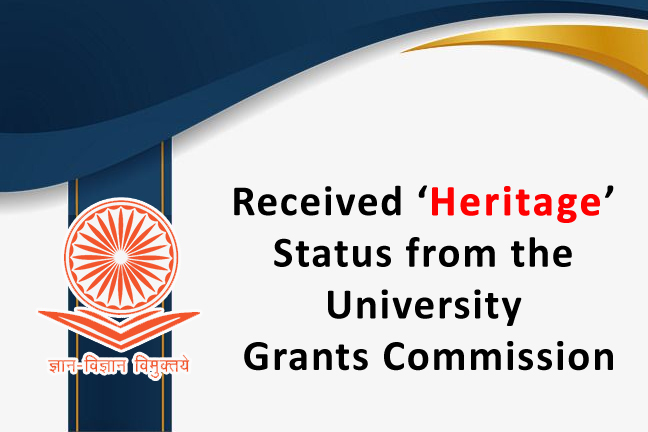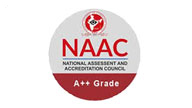SECTION I: GENERAL
1.1 Introduction
St. Xavier’s College, Kolkata, which completed 150 years in 2010, is an Autonomous College under the University of Calcutta. The College received NAAC accreditation in 2011 with a score of 3.53 (out of 4) at A grade. Autonomous status was granted to the College by the University of Calcutta through a letter dated March 6, 2006. Autonomy came into effect from the academic year of 2006-2007. It had also been declared as a ‘College with Potential for Excellence’ by U.G.C. in 2006. In March 2014, St. Xavier’s College received the recognition from U.G.C. as a ‘College of Excellence’ (CE).
The principal administrative/policy making structure in the College:
- Governing Body
- Academic Council
- The Boards of Study
- Office of the Controller of Examinations.
This structure is in accordance with the U.G.C’s Autonomy Scheme under the Twelfth Plan.
1.2 Under Graduate Degree Courses (As on 1st July, 2016)
| Degree | Course/Specialisation | Total Marks |
|---|---|---|
| B. Com (Honours) | Accounting & Finance, Marketing Management, E-Commerce |
2100+ |
| B.B.A. (Honours) | Financial Management, Marketing Management |
2200+ |
| B.M.M. (Honours) [Registered before July 2014] |
Animation | 2750 © |
| B.Sc. (Honours) | Physics, Chemistry, Mathematics, Statistics, Computer Science, Microbiology, Economics. |
2400* |
| B.A. (Honours) | English, Bengali, Political Science, Sociology, History. |
2400* |
| B.A. (General) | Electives/ Fundamentals of Finance and Accounting (FA) and Computer Applications (CA) |
2000* |
+ Excluding Foundation courses
* Excluding Compulsory Languages, Foundation courses and Environmental Studies
© Excluding EVS and foundation course
1.3 Semester system
The Undergraduate degree programme is of three/four year duration divided into six semesters/eight semesters. The Academic year is divided into two Semesters: July – December and January – June.
1.4 Admission process
The admission process starts immediately after declaration of Class XII results of the various Boards. No candidate shall be eligible for admission after a lapse of more than three years from the year of passing the previous qualifying examination. The year of admission will not be taken into account while calculating 3 years from the year of passing the previous qualifying examination.
1.5 Admission of International students
Foreign nationals, PIO card holders, OCI (Dual citizens) and NRI students can apply under the category of International students. PIO and OCI card holders will only be considered equivalent to NRI students as far as education is concerned. Details of the admission procedures of international students will be available on the College Website.
1.6 Registration
A student who is selected for enrolment in a particular course offered by the College will have to complete admission procedures and get himself/herself registered within the notified time period.
The Registration of a student is valid for 5 years including the academic year in which the registration was granted. This will be applicable for the students who are registered with effect from the academic year 2016-17. For the students registered earlier, validity of the registration period is 6 years.
1.7 Final degree certificate
The final degree will be awarded by the University of Calcutta. The name of the College will also be mentioned in the Degree Certificate.
1.8 Disciplinary Committee
There is a Disciplinary Committee to consider and dispose of the various disciplinary cases related to Examination and other matters.
1.9 Dissemination of information
College Rules, which are applicable to Under Graduate and Post Graduate students, will be published in the College Calendar and given to the students at the beginning of academic year. Students should also follow the Students’ Notice Board. General information and important announcements may also be made available through the College Website (www.sxccal.edu). The Rules may be amended from time to time and the students will be informed of that through notice boards or Website or both.
1.10 Students’ feedback system
Students’ feedback system is focused on (i) teaching-learning process; (ii) course curriculum and coverage and (iii) infrastructural facilities and general support system provided by College.
Two types of feedback are collected: (i) feedback on an annual basis and (ii) exit feedback towards the end of the course (during sixth semester). Eligibility for giving feedback – (i) Class-room feedback – Minimum 75% attendance during current semester. (ii) Exit feedback – Minimum 75% attendance during 6th Semester.
Methods of collecting feedback from students – Feedback is collected through structured questionnaire and filled up online (through College intranet) or manually. Collection of feedback is under the supervision of the Vice-Principal/Deans of Faculty/Academic Co-ordinator





